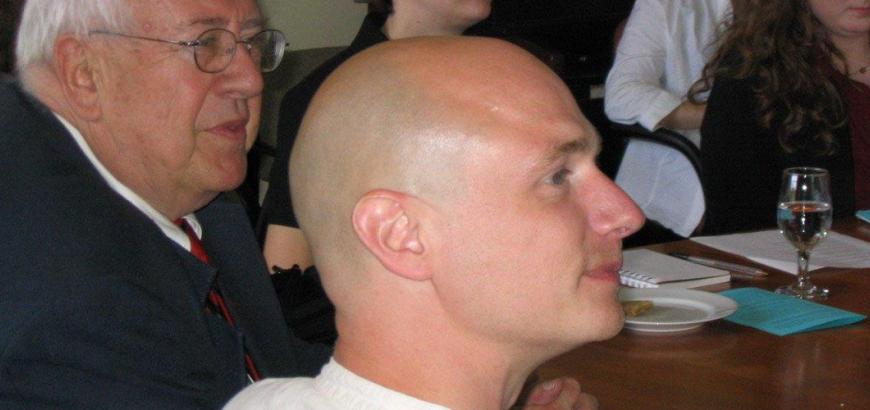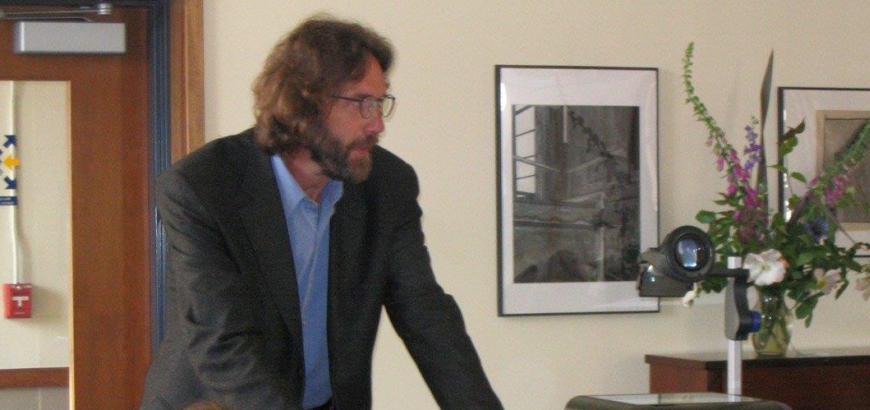As one of his doctoral students, Rick helped make me the kind of professional who could land an academic job and successfully achieve tenure—that sounds like a pretty basic definition of a Doktorvater, but from my experiences over the last 15 years, it requires a lot of work and a lot of time. Rick facilitated my first conference presentation at the MLA, found Max Kade funding for me to have a writing year for my dissertation, connected me to other mentors who aided my development, and made phone calls to universities where I had applied to advocate for me. I doubt I have ever expressed how appreciative I am for his guidance and support, and am glad to be able to do so on this occasion.
There were a lot of little things Rick did that made such an impact on me that I have continued those practices, things like returning papers quickly and with detailed commentary; being a facilitator of discussions in seminars rather than a lecturer; consistently making time to skim our disciplinary journals to keep up with general trends and new ideas; and many more. But I think the most important model he provided me has to do with course design. In my very first year as a grad student, I took Rick’s course on 18th century aesthetics, the content of which still informs my interests. But it was only years later, when I got around to reading his book, Stations of the Divided Subject, that I understood how a common pool of source materials could be differentiated into a complex, book-length argument, as well as into an accessible class structure. I’ve been involved in curricular development in my German program and in our general education core from the very first year I started at my institution, and using Rick’s model of the reciprocity between what I was thinking and writing about, and what I wanted to teach, has been very fruitful for me and my undergraduate students.
These are all anecdotes about how Rick teaches and leads by example, which makes his retirement that much more of a loss for UW Germanics and our profession. I’m sure, though, that ‘retirement’ is a word for which Rick has his own unique definition, and I’m guessing that his work will remain present for us in more than memory.
Scott Baker, ‘02
University of Missouri-Kansas City

